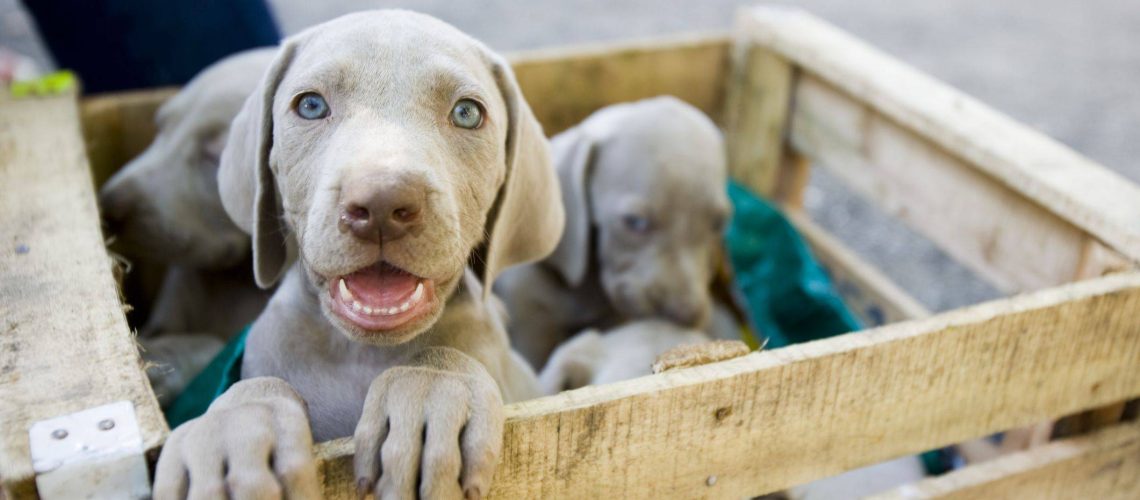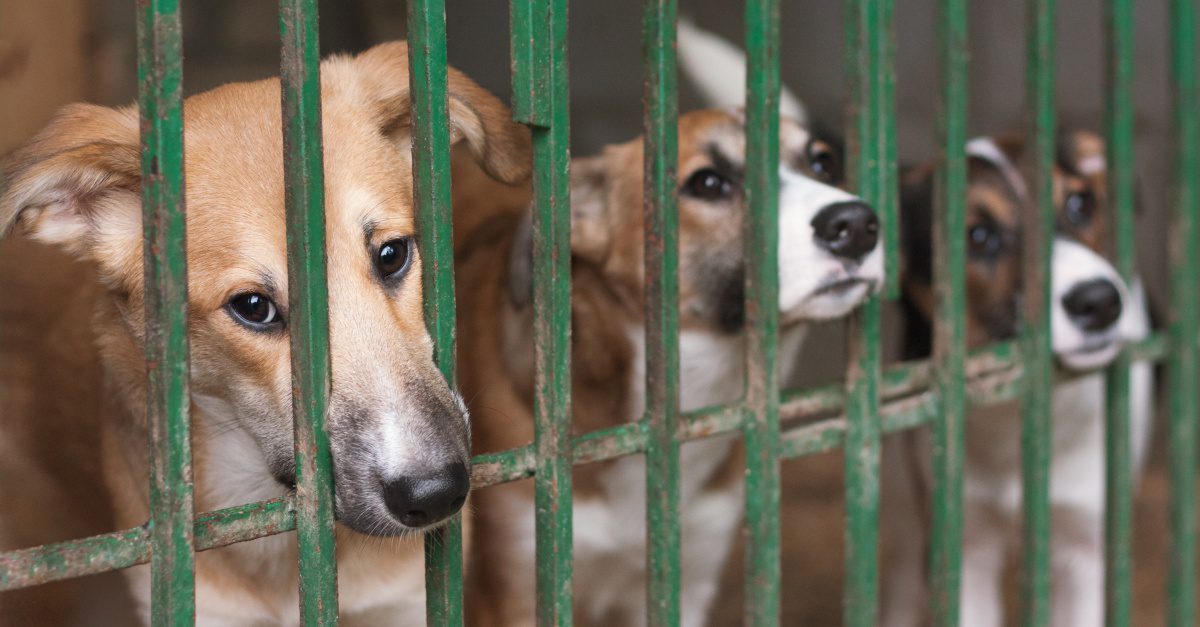In this guide, we will provide you with essential tips and advice on how to steer clear of bad dog breeders and backyard breeders. By following these recommendations, you can ensure that you bring home a healthy and well-cared-for canine companion while supporting responsible breeding practices.
Key Takeaways:
1. Research and educate yourself about responsible dog breeding practices to distinguish between reputable breeders and backyard breeders.
2. Always visit the breeder's facility or home to assess the living conditions and ensure the dogs are being well-cared for.
3. Ask for health clearances and documentation to verify that the breeder is conducting necessary health tests on their dogs.
4. Avoid purchasing puppies from pet stores or online platforms, as these are often supplied by puppy mills or unethical breeders.
5. Take your time to find a responsible breeder who prioritizes the overall well-being and health of their dogs over profit.
What is a bad dog breeder and why should you avoid them?
A bad dog breeder is someone who prioritizes profit over the well-being of the dogs they breed. These breeders often do not provide proper care for their dogs, leading to health and behavioral issues. They may keep their dogs in unsanitary conditions, without proper veterinary care or socialization.
It's important to avoid bad dog breeders because buying a puppy from them can contribute to the cycle of irresponsible breeding. Dogs from these breeders are more likely to have genetic health problems due to poor breeding practices. Additionally, supporting bad breeders perpetuates animal cruelty and neglect.
Recognizing a backyard breeder: How can you tell?
A backyard breeder is someone who breeds dogs without proper knowledge or experience. They usually operate out of their own homes or backyards, hence the name. Here are some signs that can help you recognize a backyard breeder:
- They do not ask you any questions about your lifestyle or suitability as a dog owner.
- They have multiple different breeds available at all times.
- Their dogs and puppies seem unkempt or unhealthy.
- They do not provide any documentation or proof of health testing for the parents.
The importance of research before getting a dog from a breeder
Researching before getting a dog from a breeder is crucial to ensure you find a responsible and reputable breeder. By doing thorough research, you can make an informed decision and avoid potential problems in the future.
Additionally, researching the breeder's reputation and reviews from previous customers can give you insight into their practices and the quality of their dogs. It's important to visit the breeder in person to see how they interact with their dogs and puppies, as well as to ensure they provide a clean and safe environment.
Signs that a dog breeder might not be reputable
There are several signs that can indicate a dog breeder is not reputable:
- They do not allow you to visit their facility or see the puppies' living conditions.
- They cannot provide documentation of health testing for the parents.
- They have multiple litters available at all times or have many different breeds available.
- Their prices are significantly lower than other breeders of the same breed.
If you encounter any of these signs, it's best to look for another breeder who demonstrates responsible breeding practices and prioritizes the well-being of their dogs.
Potential health problems from buying a dog from a bad breeder
Buying a dog from a bad breeder can lead to various health problems for your new pet. These health issues may arise due to poor breeding practices, such as breeding dogs with genetic disorders or failing to provide proper veterinary care. Some potential health problems include:
- Inherited diseases: Dogs bred without proper genetic testing may pass on hereditary diseases, such as hip dysplasia or heart conditions, which can lead to pain and reduced quality of life for the dog.
- Parasites: Dogs from bad breeders may be more susceptible to parasites like fleas, ticks, and worms due to inadequate health care.
- Behavioral issues: Dogs that have not been properly socialized or raised in a nurturing environment may develop behavioral problems, such as aggression or anxiety.
It's important to choose a reputable breeder who prioritizes the health and well-being of their dogs to minimize the risk of these potential health problems.
Finding a responsible and ethical dog breeder: Tips to consider
When looking for a responsible and ethical dog breeder, there are several tips you should consider:
- Ask for recommendations from trusted sources, such as veterinarians or breed clubs.
- Research the breeder's reputation by reading reviews and testimonials from previous customers.
- Inquire about health testing for the parents to ensure they are screened for any genetic conditions relevant to the breed.
- Visit the breeder in person to see how they interact with their dogs and puppies, as well as to assess the living conditions.
- Ask questions about the breeder's breeding practices, including how often they breed their dogs and what steps they take to ensure proper care and socialization.
By following these tips, you can increase your chances of finding a responsible and ethical dog breeder who will provide you with a healthy and well-adjusted puppy.
Why adopting from a shelter is better than supporting bad breeders
Adopting from a shelter is often a better choice than supporting bad breeders. When you adopt from a shelter, you are giving a second chance to a dog in need. Here are some reasons why adopting is beneficial:
- You are saving a life: Shelters are often overcrowded, and by adopting, you are creating space for another dog in need.
- You are supporting animal welfare: By adopting from a shelter, you are contributing to the efforts of organizations that work towards the well-being of animals.
- You can find a variety of breeds and mixed breeds: Shelters have dogs of all shapes, sizes, and breeds. You may find your perfect companion without supporting irresponsible breeding.
- Shelter dogs are often already spayed/neutered and vaccinated: This saves you time and money on these necessary procedures.
By choosing to adopt from a shelter instead of supporting bad breeders, you are making a positive impact on the lives of animals in need.
Risks of buying a puppy without meeting its parents or seeing where it was born
Buying a puppy without meeting its parents or seeing where it was born can pose several risks:
- Unknown health issues: Without meeting the parents, you cannot assess their health or potential genetic conditions they may pass on to their offspring.
- Lack of socialization: Puppies that have not been raised in a nurturing environment with proper socialization may develop behavioral problems later in life.
- Possible mistreatment or neglect: If you don't see where the puppy was born, you cannot ensure it came from a clean and safe environment. The breeder's treatment of the puppies' parents may also be questionable.
To minimize these risks, it is essential to visit the breeder in person, meet both parents if possible, and see where the puppies were raised. This will give you valuable insights into their health, temperament, and living conditions before making your decision.
Tips for choosing the right dog breeder for your family
Choosing the right dog breeder for your family involves careful consideration and research. Here are some tips to help you make the best decision:
- Research different breeds to find one that matches your family's lifestyle and preferences.
- Ask for recommendations from trusted sources, such as veterinarians or other dog owners.
- Visit multiple breeders and ask questions about their breeding practices, health testing, and socialization efforts.
- Observe how the breeder interacts with their dogs and puppies to assess their care and temperament.
- Inquire about any guarantees or support provided by the breeder after you bring the puppy home.
Choosing a responsible and reputable breeder will increase your chances of finding a healthy and well-adjusted puppy that will be a perfect fit for your family.
How do you know if a dog breeder is bad?
According to the ASPCA, a reputable breeder should be able to provide detailed health and vaccination records for their puppies. If a breeder cannot provide these records, it is safe to assume that they do not exist or, worse, there may be underlying health issues with the puppy.
Why you shouldn t buy from backyard breeders?
Due to prioritizing profit over the well-being of animals, both puppy mills and backyard breeders often neglect to provide proper veterinary care for their animals. While these animals may appear healthy initially, they may later develop issues such as genetic eye and hip problems, parasites, or even the potentially fatal Parvovirus.
What is a red flag when looking at dog breeders?
If the breeder appears suspicious or hesitant to provide evidence or if they tell a prospective dog owner that they need to pay for testing, this is a warning sign. It is possible that their dogs have unidentified health issues, and while they still deserve love, potential owners should be aware of what they are getting into.
What are the red flags for selling puppies?
Tim advises asking about the breeder's background and expertise. Signs to look out for may include breeders with numerous litters, readily available breeds, lack of knowledge about dog breeding, or pressuring tactics to make a purchase.
What should you not say to a breeder?
What are some things you should avoid saying when contacting a breeder? You shouldn't demand a puppy immediately or on a specific date since it is not always predictable. Also, it's not recommended to specify the color or markings you want, such as insisting on a black one.
Why do breeders ask for a deposit?
Implementing a deposit requirement serves as an effective method to ensure accountability among families and maintain a structured waitlist. This measure prevents Family A from reserving a spot ahead of Family B and choosing the puppy that Family B had their eyes on, only to withdraw their interest at the last moment.
| Conclusion | |
| 1. | Research extensively before purchasing a dog to avoid bad and backyard breeders. |
| 2. | Look for reputable breeders who prioritize the health and well-being of their dogs. |
| 3. | Visit the breeder's facilities and ask questions about their breeding practices. |
| 4. | Avoid buying dogs from pet stores or online platforms without thoroughly investigating their sources. |

















